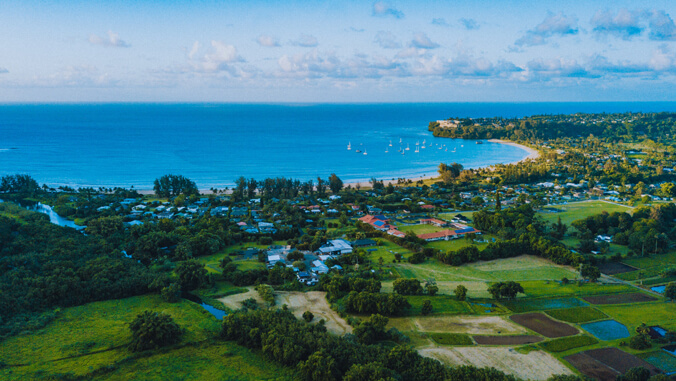
"Regenerative" tourism is when visitors travel with a mindset to leave a destination better than it was before they arrived, and experiences go beyond a traditional vacation. A new survey of 463 Kauaʻi residents, one of the first in Hawaiʻi that attempts to capture the residents' perspective, suggests that regenerative tourism makes the tourism industry and tourists more attractive to residents. An overwhelming 96.3% of Kauaʻi residents responded favorably toward regenerative travel, and 98.7% responded favorably toward tourist attractiveness.
University of Hawaiʻi at Mānoa School of Travel Industry Management in the Shidler College of Business Professor and study co-author Jerry Agrusa said the survey results provide direct evidence for an underutilized type of tourism not often practiced and researched.
"Before COVID in 2019, there was actually a pushback by the residents of Hawaiʻi, they felt like there were too many tourists—the term 'over tourism' came up," Agrusa said. "When COVID came and we locked everything down in 2020 and we had 200,000 people unemployed in one month, it was an opportunity to stop and say 'let's see what we can do to improve tourism from all stakeholders perspective including the residents when we open back up.' One of the things that we were able to do is try to target the type of tourist that we want."
Examples of regenerative tourism in Hawaiʻi, and specifically on Kauaʻi, include replanting native tree species to offset the carbon footprint that is produced by flying to Hawaiʻi, helping remove invasive plant species off hiking trails, working in a loʻi (taro patch) to experience first hand part of the Hawaiian culture, and helping to remove plastic and abandoned fishing nets off beaches. Regenerative tourism involves providing activities for visitors that will allow destinations to heal, while counterbalancing the social, economic and environmental impacts of tourism.






